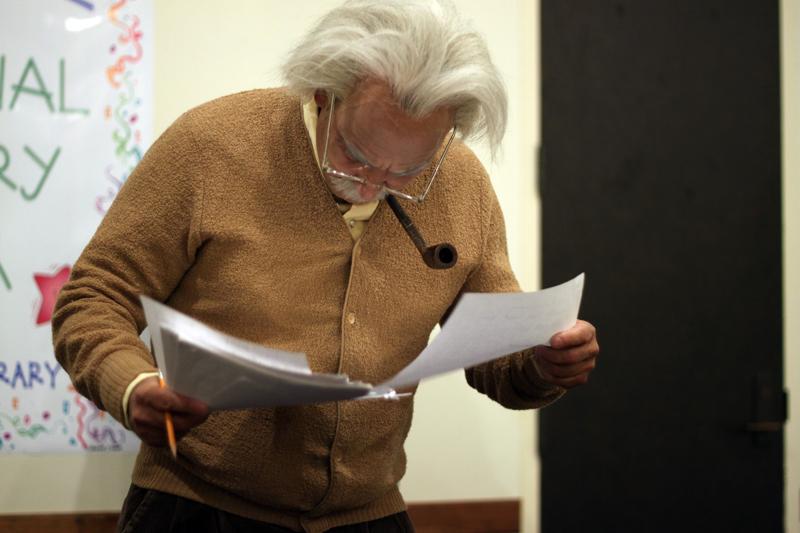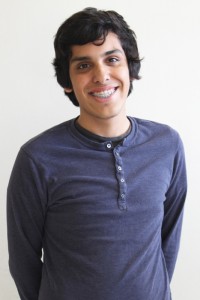Students and residents gather at the Cormack Room at the Downey City Library on April 18, at 6:30pm, to see Duffy Hudson’s retelling of Albert Einstein’s life through dramatic monologue. The event began with a quick retelling of Einstein’s life and then proceeded to explain the theories and laws that he pushed forward, such as the law of relativity and a refinement of the law of gravity.
Einstein’s life, as portrayed by Hudson, showed how his growth as a curious youth evolved into his desire and love for science and math. The actor, sticking true to the properties of dramatic dialogue, orated in an affected German accent and impersonated Einstein as a carefree and rather childish man. Hudson, however, did not relay the story of one of science’s greatest minds in a drab and chronological order; instead, the actor chose to delineate Einstein’s life with a series of stories that he would occasionally break to draw examples from the present. For example, Einstein would speak about how he never quite fit in correctly with school because of how slow he took to fully and completely understand a concept or to reach its logical conclusion. Then, he would cut his story to say that he fully appreciates academia and those who find knowledge and wisdom therein.
After a twenty-minute monologue, the show moved on into explaining the theories and works that Einstein created. Some of the greatest questions that Einstein faced—and, that the play centered on—were those of time, space, gravity, and light. The rest of the performance focused on explaining these concepts to the audience in a manner that is easy to digest.
The theory that Einstein is most famous for, and that in fact revolutionized physics with, is the theory of relativity, which states that light is always measured at the same speed (roughly 186,000 mph) no matter how fast you are traveling or the direction you are going. The thing to remember is that everything is relative to the observer. Also, the theory thereby hints that nothing is constant except for light—which means that time itself can fluctuate and change!
“It’s all a little hard to get,” Junior Joselyne Martinez said, “but it’s a lot easier to understand when he explains it. Like, I don’t think I can explain it as well as he did, and I probably still don’t get it all, but it makes more sense than before.”
Martinez was not the only student present to gain a better understanding of the theories. The most important aspect of their attendance—even if it was incentivized by extra credit—is the fact that those who attended came away with something enlightening.
“I would love to come again,” junior Samantha Siordia said, “because it was really interesting. I liked the way that he used the accent, and the way that he kinda captured Einstein. I would bring others to come too.”
The most interactive aspect of the presentation was definitely the questions and answers portion. The audience was allowed to pose any questions that they had, such as whether or not Einstein was religious, whether or not he thought people could travel back through time, and whether or not Einstein would feel incongruous with today’s academic and scientific community.
“The play was fun, and in fact I want to learn more about Einstein than ever before,” junior Adriana Ocana said.
Also, she expressed a high desire to go into physics because she didn’t know that it could be so complex and different.
At the end of the day, the best thing about having gone to the performance is surely the growth of knowledge. Hopefully, people continue to go to similar abstract and unique performances in the future so that they can learn to not only appreciate the arts, but also science.




